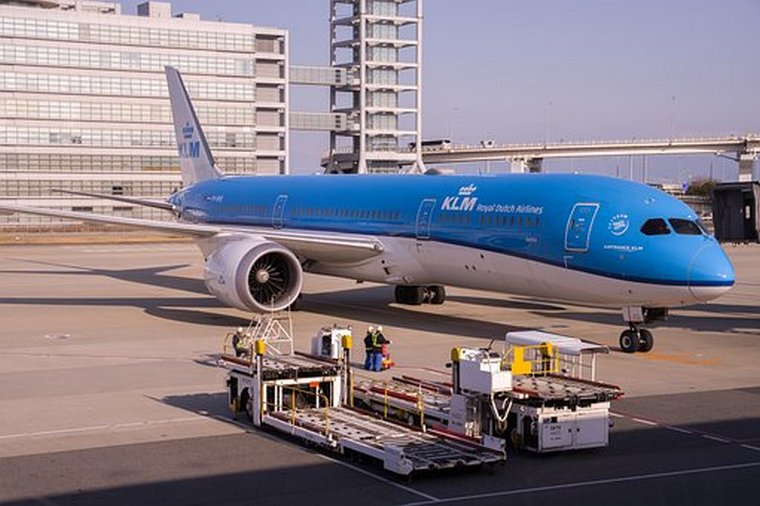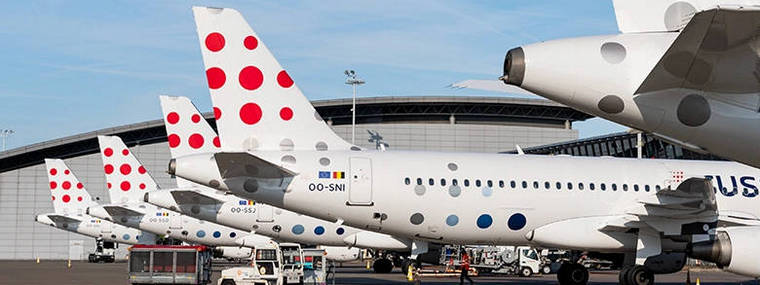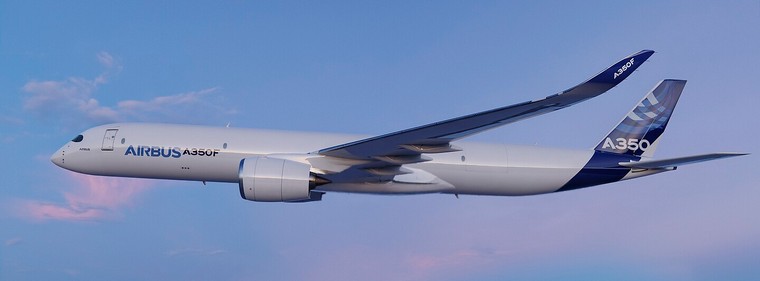



























Airlines, Airports and Airliners 23 January to 2 February 2023
Google Banner Ad

IATA WELCOMES RESTORATION OF 'CLASS A' ATC SERVICES OVER SOMALIA

The International Air Transport Association (IATA) welcomes the reclassification of airspace over Somalia and the surrounding region to Class A. This will take place at one minute past midnight on 26 January 2023 when air traffic control services will be operationally restored after a 30-year disruption.
"The reclassification of the Mogadishu FIR as 'Class A' airspace will significantly improve safety in the region and enhance efficiency. This is thanks to the collaborative efforts of the Somalia Airspace Special Coordination Team, comprising the Somali CAA, IATA, the International Civil Aviation Organization, adjacent FIRs and airlines," said IATA's Regional Vice President for the Middle East and Africa, Kamil Al-Awadhi.
The reclassification of the airspace and the operational resumption of air traffic control in the Mogadishu FIR has been made possible with the installation and commissioning of modern radio navigation and other technological infrastructure. It follows a successful trial which began last May.
"The upgrade of air traffic management and improved navigation and communication infrastructure will enhance situational awareness along an increasingly busy air corridor and its intersections with routes linking many of the world's regions," added Al-Awadhi.
All flights operating in Class A airspace must be cleared by air traffic control which is also responsible for maintaining lateral and vertical separation between aircraft. In the Mogadishu FIR, Class A airspace is the sky above the base altitude of approximately 24,500 feet above mean sea level.
Google Banner Ad
AVIATION INDUSTRY WELCOMES PAUSE ON ROLL-OUT OF NEW BORDER SYSTEM FOR EU.

ACI EUROPE, A4E, ERA and IATA welcome the decision to postpone the implementation of the EU's new smart border system for non-EU nationals (i.e. Entry Exit System, EES).
These issues include: Wider adoption and effective implementation of automation at national border crossing points by national authorities,
Funding by member states to ensure a sufficient number of trained staff and resources are deployed to manage the EU's external border, particularly at airports, deployment of sufficient resources to support the implementation of new procedures by airports and airlines and the need for a public communications campaign to alert third-country nationals to the new requirements.
Building traveller confidence with an effective rollout of EES is critical for the aviation sector as it continues its recovery.
Google Banner Ad
TRANSAVIA BOEING 737-800 DAMAGED BY GROUND VEHICLE WITH INACTIVE BRAKES
Google Banner Ad
RYANAIR CUTS CARBON EMISSIONS BY 165,000 TONNES WITH WINGLET RETROFIT.

Following a $175m agreement with Aviation Partners Boeing (APB), Ryanair, Europe's No.1 airline, today (23 Jan) installed Split Scimitar Winglets to the first of over 400 of its Boeing 737-800 Next Generation aircraft. This modification will improve aircraft fuel efficiency by up to 1.5%, reducing Ryanair's annual fuel consumption by 65 million litres and carbon emissions by 165,000 tonnes.
Ryanair's Director of Sustainability, Thomas Fowler said: "As Europe's most environmentally efficient major airline, we are leading the way in sustainable aviation as demonstrated by this investment in our fleet. This winglet technology will help us reach our ambitious environmental targets on our pathway to net zero emissions by 2050. We are impressed with APB's innovative winglet designs and look forward to having them installed on not just this first aircraft but on over 400 of our aircraft to further reduce our emissions."
APB's Chief Commercial Officer, Patrick LaMoria said: "Having the operator of the world's largest fleet of 737-800 Next Generation aircraft install Split Scimitar Winglets is the ultimate endorsement of APB and its products. We are both humbled and honoured to continue to support Ryanair in their ambitious sustainability initiatives."
Google Banner Ad
KLM GROUP'S CO2 EMISSION REDUCTION TARGETS FOR 2030 APPROVED BY SBTI

KLM is committed to reducing its environmental impact as part of a transparent and responsible sustainability policy. An important part of this relates to its commitment to reduce Scope 1 and Scope 3 emissions by 30% per revenue tonne kilometre (RTK) by 2030 compared to 2019. Together with Air France-KLM and Air France, this target was submitted and recently approved by SBTi's Target Validation Team. SBTi has determined that it complies with the well-below 2°C trajectory set for the airline industry, as determined by the Paris Agreement signed in 2015.
Google Banner Ad
BRUSSELS AIRLINES AND BRUSSELS AIRPORT KICK OFF THE NEW YEAR WITH FIRST DELIVERY OF SUSTAINABLE AVIATION FUEL

As of 1 January 2023, the NATO pipeline supplying Brussels Airport with kerosene will be opened for the transport of Sustainable Aviation Fuel (SAF). Brussels Airlines will transport the very first batch of sustainable aviation fuel transported via this route today at Brussels Airport. The airline will operate a symbolic first SAF flight today, from Brussels to Malaga. Brussels Airport is the only Belgian airport fully supplied with kerosene via the NATO pipeline. From now on, sustainable aviation fuels can also be supplied in a fast and environmentally friendly way via this system. An important milestone to increase the use of sustainable fuels in the coming years and reduce CO2 emissions.
Sustainable aviation fuels can now be delivered to Brussels Airport in a smooth, safe and CO2-free manner via the NATO pipeline (CEPS or Central Europe Pipeline System). Brussels Airport is the only Belgian airport that is fully connected to this pipeline network and had been asking for some time to be able to receive not only kerosene but also SAF via this pipeline. Thanks to the cooperation of NATO, this has been possible since today. Brussels Airlines is the very first airline to fly with SAF transported through this system.
SAF or Sustainable Aviation Fuel is the collective name for various sustainable aviation fuels. SAF reduces greenhouse gas emissions up to 80%* over the lifetime of the fuel compared to using fossil aviation fuel. The Neste MY Sustainable Aviation Fuel used by Brussels Airlines is produced from sustainably sourced, 100% renewable waste and residual raw materials, including used cooking oil and animal fat waste. Brussels Airlines purchased 2,000 barrels of 1,000 litters each with a blend of 38% SAF for this pilot project The sustainable aviation fuel was transported by Brussels Airlines from Neste's blending facilities in Ghent via the CEPS pipeline to the fuel storage facility at Brussels Airport on 1 January just after midnight, allowing Brussels Airlines to operate its first flights with SAF on 1 January.
SAF are an important instrument in decreasing the ecological footprint of aviation. While the European Commission (ReFuelEU) is working towards an obligation of 2% SAF from 2025 and 5% from 2030, Brussels Airport and its partners within the Stargate project are aiming for 5% SAF by 2026. Having SAF readily available through the already available infrastructure at the airport and the NATO pipeline is a serious optimization if it comes to the supply.
In order to promote the collection of raw materials for SAF, a population survey and sensitization campaign will be used within the Stargate project to inform and sensitize the general public to collect more used frying oil for SAF production. Within Stargate, the use of SAF at Brussels Airport will continue to be promoted. A large-scale blending plant as was first going to be explored is now no longer necessary, but smaller-scale blending of biofuel with kerosene with high blend ratios at the request of partners will be further explored and developed. ?
Google Banner Ad

The airline will operate 61 return flights per week between Hong Kong and 13 Mainland cities. Cathay Pacific welcomes the Hong Kong SAR Government's latest measures to facilitate quarantine-free travel between Hong Kong and the Chinese Mainland, as well as the lifting of transit restrictions, effective 8 January 2023.
In light of today's announcement, Cathay Pacific will more than double its flights into the Chinese Mainland, operating 61 return flights per week between Hong Kong and 13 Mainland cities from 14 January 2023. This compares to the 27 flights per week from Hong Kong to the Mainland, and 50 flights per week from the Mainland to Hong Kong that the airline is currently operating.
Cathay Pacific is working actively to resume and add more flights progressively between Hong Kong and the Chinese Mainland in the coming weeks, with the aim of operating over 100 return flights per week by March 2023.
Anand Yedery, Regional Head of Marketing and Sales, South Asia, Middle East and Africa (SAMEA), said, "The new year has welcomed us with positive developments. We have always had strong connections into the Chinese Mainland and are delighted to more than double our frequency. With the Chinese Mainland lifting its quarantine and transit requirements, we anticipate the demand to travel further grow particularly with the upcoming Chinese New Year. The increase in operations will provide travellers, particularly from the business and trade segment with more options and accessibility to travel."
From 8 January 2023, Cathay Pacific will increase its flights between Hong Kong and Beijing to 10 pairs per week, and between Hong Kong and Shanghai (Pudong) to 21 pairs per week. The airline is also resuming flights to Guangzhou with five return flights per week.
Meanwhile, from 14 January 2023 the airline will increase its flights between Hong Kong and Xiamen to four pairs per week, and between Hong Kong and Chengdu to six pairs per week.
As of today, Cathay Pacific operates flights serving close to 60 destinations worldwide. The airline continues to add more destinations to its schedule. Please visit our website for the latest flight schedule and information.
The Group remains fully committed to rebuilding the connectivity of the Hong Kong international aviation hub. As a Group, we anticipate that we will be operating around 70% of pre-pandemic passenger flight capacity by the end of 2023, with an aim to return to pre-pandemic levels by the end of 2024.
Google Banner Ad

The Air France-KLM Group has placed a firm order for four A350Fs, the brand-new Airbus widebody freighter, to be operated by Martinair Holland N.V., a Dutch cargo airline headquartered and based in Amsterdam Schiphol airport, and part of KLM Group. The A350F's will allow the airline to retire its existing older generation freighters and replace them with a clean sheet cargo aircraft that offers a big step towards more sustainable cargo operations.
"We are delighted to make this major step forward to the A350F. It accelerates Air France KLM Martinair Cargo sustainability ambitions with significant improvement on fuel emissions and complying with most stringent ICAO Chapter 14 for noise and CAEP 8 for NOx. We are fit for the future!" said Adriaan den Heijer, Executive Vice President Air France KLM Cargo and Managing Director Martinair.
"Another A350F endorsement, and a great one too! We are delighted to see the A350F enter the KLM/Martinair world, confirming the relevance this most modern high-capacity long range cargo aircraft brings to the airfreight segment. I am very pleased with the way our program is taking off. With 50% less noise, and 40% less fuel burn and CO2 emissions compared to the previous generation aircraft it is replacing, that is hardly a surprise! We thank Air France-KLM Group for their continued confidence." said Christian Scherer, Airbus Chief Commercial Officer and Head of Airbus International.
The A350F is based on the world's most modern long-range leader, the A350. The aircraft will feature the largest main deck cargo door and a fuselage length optimised for cargo operations. Over 70% of the airframe is made of advanced materials resulting in a minimum 30 tonnes lighter take-off weight, which together with efficient Rolls-Royce engines generate an advantage of at least 20% lower fuel burn and CO2 emission over its current closest competitor. Delivery to Martinair will be in time to comply with the latest ICAO CO2 emissions standards that will come into effect by the end of 2027. With a 109 tonnes payload capability (+3t payload / 11% more volume than its competition), the A350F serves all cargo markets (Express, general cargo, special cargo…).
Launched in 2021, the A350F recorded 35 orders from seven customers.
Google Banner Ad

 |
 |
 Copyright © 2024 Pilot's Post PTY Ltd
The information, views and opinions by the authors contributing to Pilot’s Post are not necessarily those of the editor or other writers at Pilot’s Post.
Copyright © 2024 Pilot's Post PTY Ltd
The information, views and opinions by the authors contributing to Pilot’s Post are not necessarily those of the editor or other writers at Pilot’s Post.